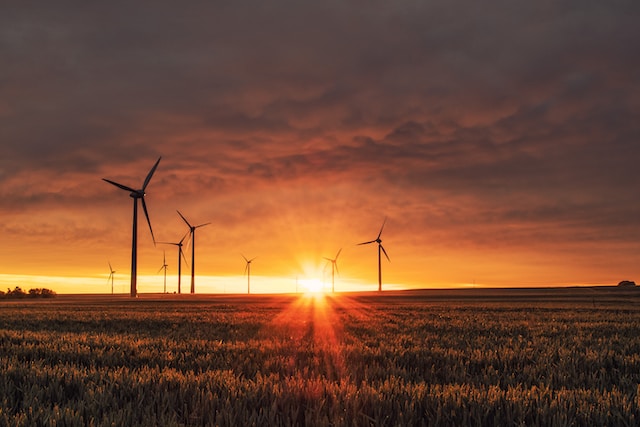Donald Trump’s election victory is quickly taking the wind out of the Biden administration’s ambitious renewables initiatives. President-elect Trump promised to end federal subsidies for offshore wind projects on his first day in office. As with many of his campaign pledges, Americans wait to see whether he will deliver.
Wind Turbines Fall in Popularity
However, the market did not wait to see. Stock prices of offshore wind developers and turbine makers moved sharply downward following election day as investors query whether windmill projects are economically viable without the hefty federal subsidies Trump has promised to terminate. Environmental groups and fishermen have also raised concerns about the potential ecological trade-offs of this plastic-based technology, and worries about ecotoxins created in the manufacturing of solar panels and EVs have caused consumers to pause.
The Biden administration was all in for offshore wind power, providing subsidies under the Inflation Reduction Act that are also now on the Trump chopping block. The Biden-Harris tenure approved six offshore wind lease sales and ten offshore commercial wind projects since January 2021, despite criticisms by many that the administration is “prioritizing green energy goals over fishermen’s livelihoods and the health of the marine environment.”
It is not just right-wing extremists who are raising alarms about these huge offshore wind projects, but Maine fishermen who argue their livelihoods are being destroyed, and wildlife advocates concerned about impacts on whales and endangered species. Donald Trump’s determination to halt further public support for
Trump vs Biden: Energy Production Wars
In contrast, the Biden pursuit to “end oil” has resulted in stalled or canceled leases for oil and natural gas extraction. Ironically, windmills, solar panels, and EVs require massive amounts of fossil fuels (including coal) to manufacture them. This rather odd targeting of the energy industries, necessary in the production of their purported replacement, reveals a tandem hypocrisy in the windmill kerfuffle. All these industries spew enormous quantities of chemical pollution in their rushed production. Their frantic subsidization with borrowed funds is also of dubious ability to “reduce inflation,” yet another false sales pitch among many.
The war on wind turbines is likely just warming up – windmills are made with vast quantities of polluting plastic that must be disposed of either at end-of-life or when something bad happens: like when a gargantuan wind turbine fell apart off the coast of Massachusetts and washed ashore. The “Vineyard Wind” accident led to a flotilla of protesters against further projects along parts of the US East Coast – not by “Burn, Baby, Burn!” consumers but by the New England Fisherman’s Stewardship Association (NEFSA), a commercial fishing industry group. If the choice is between schools of fish or farms of ocean wind turbines, the fish win.
Similar battles await the renewables industry as public awareness grows of the hidden environmental costs of solar panel manufacturing using coal, mining, and industrial processes that spew forever chemicals. EVs require cobalt, lithium, and other inputs that are destroying farmlands and the environment in Congo and other nations, and the oceans hosting wind turbines are also being drowned in microplastics from EV tires that wear 30% faster than gas-powered vehicle tires, contributing exponentially to ocean waste. All of these harmful processes are justified using a perverse environmental logic that claims churning out toxic forever chemicals is warranted in an all-out assault on carbon dioxide.
Without Biden’s “inflation-reducing” subsidies, wind turbines are likely dead in the water – offshore or inland. Farmers and fishermen are increasingly balking at the false promises of “clean, affordable” energy that threatens their livelihoods and the ecosystem’s health. As such, Donald Trump likely won’t find much resistance as he terminates “on day one” the federal subsidies of the Biden administration.
